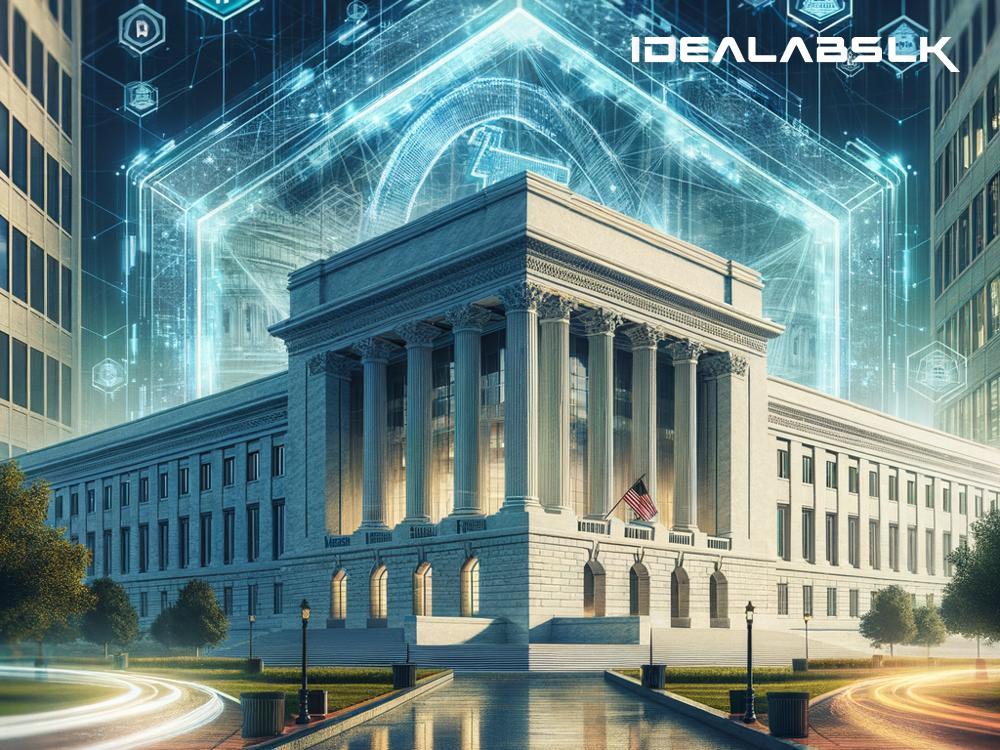Title: How Blockchain Will Transform Government Transparency for a Brighter Future
In today's fast-paced world, where technology is constantly evolving, there's one innovation that has the potential to truly redefine the way governments operate and interact with their citizens: blockchain. This might sound complicated, but it's a technology that is simple at its core and has the potential to bring about significant benefits, especially when it comes to government transparency.
Government transparency is all about making sure that citizens can see and understand what the government is doing, how decisions are made, and where money is being spent. It's a cornerstone of democracy, allowing people to hold their leaders accountable and ensuring that corruption is kept in check. Unfortunately, achieving true transparency has been a continuous challenge around the world. Enter blockchain, a technology you might have heard of in the context of cryptocurrencies like Bitcoin. But, it's so much more than just a foundation for digital currencies.
What is Blockchain?
Imagine a ledger or a record book that's not kept in one place but is spread out across thousands of computers around the world. Each "block" in the blockchain contains a number of transactions, and once a block is completed, it's added to the "chain" in a linear, chronological order. This unique way of recording information makes it incredibly secure and almost impossible to change, hack, or cheat the system.
How Can Blockchain Help Governments?
-
Enhanced Transparency: Since blockchain operates on a decentralized system where every transaction is recorded and accessible, it can provide unparalleled transparency. Governments can use it to record everything from financial transactions, contracts, asset registration, to even voting results. Every citizen can have access to this data, ensuring that government operations are transparent and accountable.
-
Improved Security: Security is a major concern for governments, especially when it involves sensitive or personal data. The encrypted and decentralized nature of blockchain makes it extremely difficult for hackers to compromise the data, ensuring a higher level of security for government-held information.
-
Efficient Service Delivery: Blockchain can streamline processes, making them more efficient and reducing bureaucratic delays. For instance, property transactions that typically take months due to paperwork and verification processes could be completed in days or even hours.
-
Fighting Corruption: Corruption thrives in environments where there is a lack of transparency and accountability. Blockchain's transparent and immutable record-keeping can act as a powerful deterrent to corruption, making it easier to track and expose any illicit activities.
-
Innovative Voting Mechanisms: Imagine a voting system where you can cast your vote securely from your smartphone, with the assurance that your vote is accurately recorded and tamper-proof. Blockchain can make this possible, potentially increasing voter turnout and trust in the electoral process.
Real-world Applications and Looking Ahead
Several governments are already exploring or implementing blockchain. Estonia, for example, is a pioneer in using blockchain for a range of services, including healthcare, judiciary, and business registration. Similarly, Dubai aims to become the first blockchain-powered government by revolutionizing all of its government systems with blockchain by 2020.
The potential applications are vast and varied. From managing land registries, safeguarding digital identities, to ensuring the integrity of government contracts, blockchain stands as a beacon of hope for a future where government transparency is not just an ideal, but a reality.
Challenges and Considerations
Despite its potential, blockchain is not a one-size-fits-all solution. There are challenges to consider, such as the digital divide, regulatory hurdles, and the need for a substantial shift in mindset from traditional modes of governance. Governments will need to invest in infrastructure, develop stringent regulatory frameworks, and ensure that the transition to blockchain-based systems is inclusive and equitable.
Conclusion
Blockchain technology presents a golden opportunity to transform government operations, making them more transparent, secure, and efficient. While the road ahead might have its set of challenges, the potential benefits for democracy and governance are too significant to ignore. By embracing this innovation, governments worldwide can forge a path towards a future where transparency is not just an aspiration but a reality, fostering trust and accountability between citizens and their leaders. The journey has just begun, and it's an exciting time to envisage how blockchain will shape the future of government transparency.

